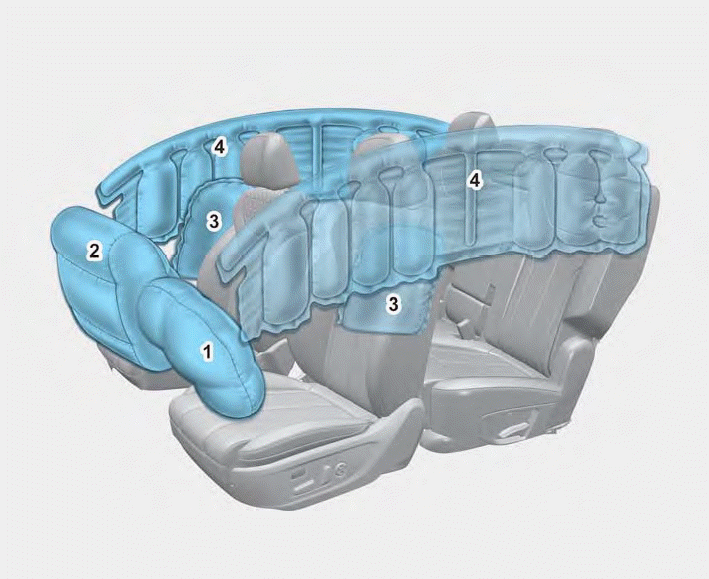Hyundai Santa Fe: Charging System / Description and operation
Hyundai Santa Fe (TM) 2019-2025 Service Manual / Engine Electrical System / Charging System / Description and operation
| Description |
The charging system includes a battery, an alternator with a built-in regulator,
and the charging indicator light and wire.
The Alternator has eight built-in diodes, each rectifying AC current to DC current.
Therefore, DC current appears at alternator "B" terminal.
In addition, the charging voltage of this alternator is regulated by the battery
voltage detection system.
The main components of the alternator are the rotor, stator, rectifier, capacitor
brushes, bearings and V-ribbed belt pulley. The brush holder contains a built-in
electronic voltage regulator.
| Alternator Management System |
Alternator management system controls the charging voltage set point in order
to improve fuel economy, manage alternator load under various operating conditions,
keep the battery charged, and protect the battery from over-charging. ECM controls
generating voltage by duty cycle (charging control, discharging control, normal
control) based on the battery conditions and vehicle operating conditions.
The system conducts discharging control when accelerating a vehicle. Vehicle
reduces an alternator load and consumes an electric power form a battery.
The system conducts charging control when decelerating a vehicle. Vehicle increases
an alternator load and charges a battery.
 Components and components location
Components and components location
Components
1. ECM
2. Battery
3. Alternator
4. Starter
5. Instrument
Cluster
6. Ignition switch or start/stop button
7...
Other information:
Hyundai Santa Fe (TM) 2019-2025 Service Manual: Power Door Mirror Actuator. Repair procedures
Removal 1. Disconnect (-) battery terminal. 2. Using a fastener remover (C), remove the mirror (A) as illustration below. • Protect mirror from removing tool with cloth (B) wrapped...
Hyundai Santa Fe (TM) 2019-2025 Service Manual: CVVT & Camshaft. Repair procedures
Removal • Be careful not to damage the parts located under the vehicle (floor under cover, fuel filter, fuel tank and canister) when raising the vehicle using the lift...
Categories
- Manuals Home
- 4th Generation Santa Fe Owners Manual
- 4th Generation Santa Fe Service Manual
- Gauges and meters
- Troubleshooting
- Warning and indicator lights
- New on site
- Most important about car
Air bag - supplemental restraint system

1. Driver’s front air bag
2. Passenger’s front air bag
3. Side air bag
4. Curtain air bag
The vehicles are equipped with a Supplemental Air Bag System for the driver’s seat and front passenger’s seats.
The front air bags are designed to supplement the three-point seat belts. For these air bags to provide protection, the seat belts must be worn at all times when driving.
Copyright © 2025 www.hsafe4.com

